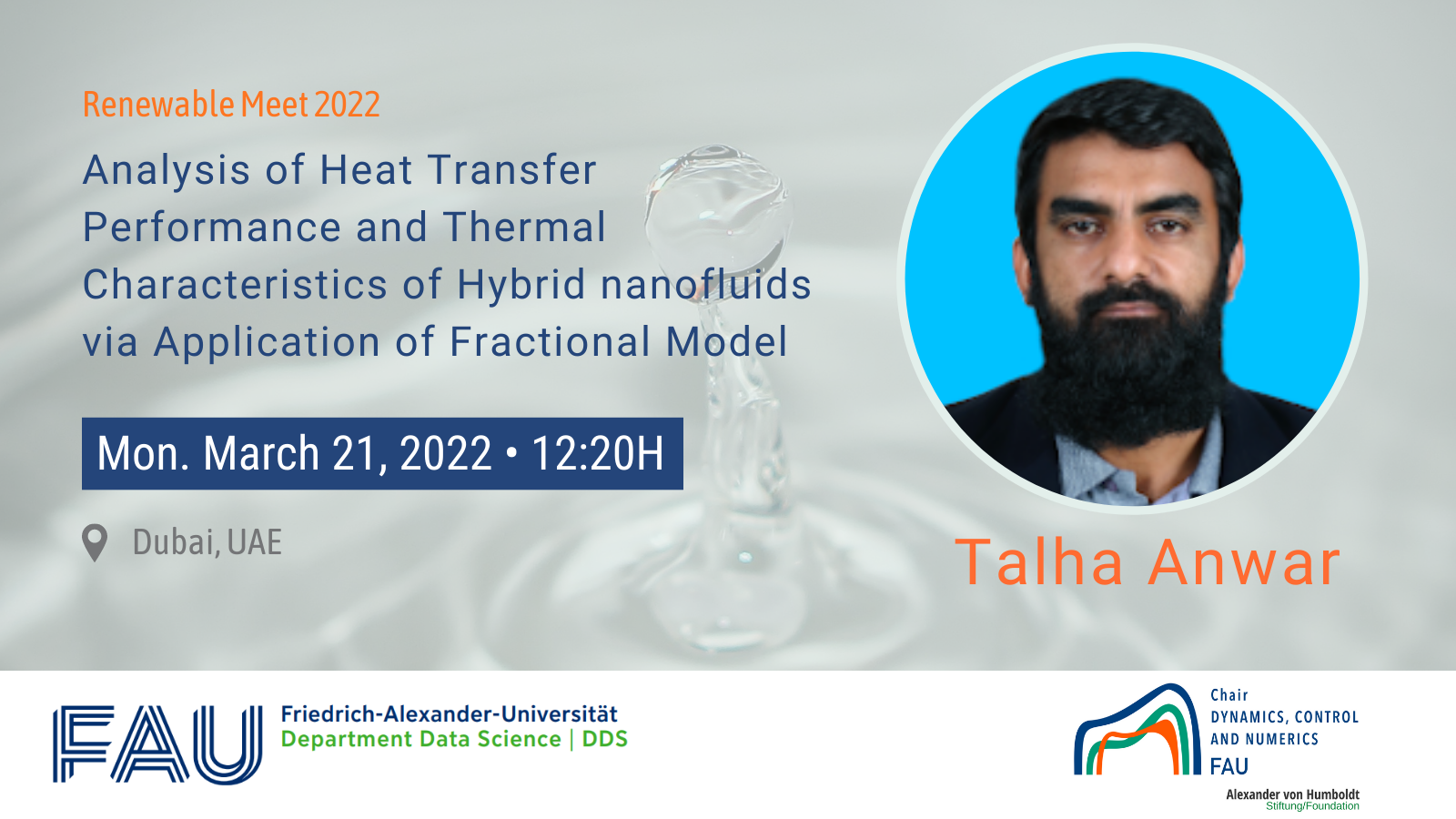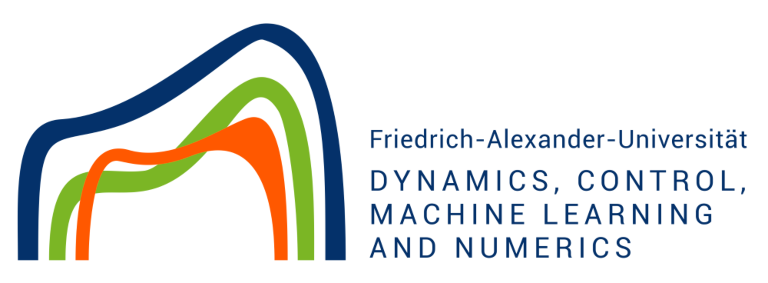
Renewable Meet 2022
Next week, on March 21st Talha Anwar guest internship student at our FAU DCN-AvH Chair will talk as invited speaker on “Analysis of Heat Transfer Performance and Thermal Characteristics of Hybrid nanofluids via Application of Fractional Model” at the Renewable Meet 2022, an International Conference on Renewable and Sustainable energy in Dubai, UAE during March 21-23, 2022.
Abstract. Hybrid nanofluids are considered to be the latest nanotechnology innovation because of their remarkable physical and mechanical properties. Recently, researchers have shown great interest in evaluating the thermal behavior of different hybrid nanoparticles during multiple flow situations. The core determination of this study is to investigate the augmentation in the radiative heat transfer rate of Fe_3 O_4 - MoS_2 - H_2 O hybrid nanofluid specifying a flow over an inclined plate subject to ramped heating and heat generation/consumption effects. The flow of considered hybrid nanofluid is developed due to the ramped motion of the inclined plate that encounters the magnetic effects and immersed in a porous material. The fractional form of energy and momentum equations is obtained by employing the concept of the Atangana-Baleanu fractional derivative. Some unit-free quantities are introduced and the Laplace transform method is operated to construct the exact solutions of these equations. The noteworthy physical significance of involved parameters is discussed with the aid of graphical illustrations. To analyze the behavior of shear stress and heat transfer rate, numerical computations are tabulated in terms of skin friction coefficient and Nusselt number. All the figures and tables are prepared for both ramped and isothermal boundary conditions to highlight the impacts of the ramped heating condition and ramped motion of the inclined plate. It is observed that a water-based hybrid nanofluid that contains equal proportions of Fe_3 O_4 and MoS_2 nanoparticles exhibits an improvement of 6.14% in the heat transfer rate. The motion of hybrid nanofluid is retarded by fractional and inclination parameters, whereas the thermal radiation parameter serves as a flow supportive factor. Moreover, it is realized that ramping of the boundary surface and the fractional model are more effective for enhancing the heat transfer rate and limiting the shear stress. This result accentuates the significance of ramping technique in achieving a faster cooling rate and better flow control for various engineering applications.
|| See more details at the official page of the event
